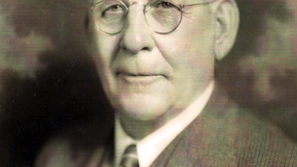Lest we forget their eager service
- Bill Coate
- Nov 7, 2018
- 3 min read

Madera County Historical Society Several students from Madera High School, shown here, left their classes to join the Army in World War I. Some did not come back. A special ceremony is being planned for Thursday, Nov. 8, to commemorate these fallen student soldiers.
World War I. Slowly but surely the United States was drawn into it with each act of aggression by the Central Powers, and a growing patriotism was the response. Overnight the Germania Life Insurance Building in St. Paul became the Guardian Building. School boards across the land banned the teaching of the German language. Sauerkraut was renamed “liberty cabbage,” and in Madera the name of the Munich School was changed to Dixieland.
In the meantime, Maderans of all persuasions supported the entry of the United States into this first truly worldwide conflagration. Within three days after the declaration of war, Maderans made preparations to do their duty by forming an unauthorized, para-military unit called the Home Guard. On April 9, 1917, it was announced that the first meeting would be held in the Lincoln Grammar School.
“We are in for a war, and we intend showing the world that Americans can raise an army,” one spokesperson stated. The Madera Tribune reported that “patriotic feeling was running high.” It was hoped the creation of the Home Guard would provide the rudiments of military training for young and old alike, since Maderans could be expected at anytime to be called upon to “protect their firesides.”
At its first meeting, the local group chose George S. Thurman as president and John T. Wasley, a Madera teacher, as secretary. Joseph Barcroft was the spokesman for the group.
So rousing was this appeal to arms that 105 citizens placed their names on the dotted line, mindful of the admonition “not to sign up unless they were willing to fight.” By April 20, the membership of the Home Guard had risen to 182.
By May 2, 1917, the home-grown unit was ready to take to the streets of Madera. Outfitted in their Khaki trousers, white shirts, and white sailor hats, their drills were conducted in two separate squads: one that took to close order drill very quickly and a second one, dubbed the “awkward squad” because of its need for a bit more practice.
After its formation, Madera’s Home Guard placed sentries at the bridges which crossed the Fresno and San Joaquin Rivers. Noting that Madera High School was raising crops in vacant lots, it issued a call for all school children to aid the war effort by following suit.
It didn’t take long for “officialdom” to grasp the initiative from Madera’s Home Guards. A County Defense Council, unlike the Home Guards, was created with official status. Each County Defense Council in the state was composed of a superior court judge, the district attorney, the sheriff, and the chairman of the various boards of supervisors. Three members at large were also chosen.
Within a few weeks, the County Defense Council took control of the Home Guard and all other civilian attempts to aid the war effort. A conscription mechanism was put into place whereby the enrollment of all males of military age was conducted by officers from each of the county’s 39 voting precincts, and the Madera Home Guard passed into history; its first blush of enthusiastic patriotism was refined by the sobering months that lay ahead.
Scores of Maderans joined the fight oveseas. Finally, on the 11th hour of the 11th day of the 11th month of 1918, World War I came to an end. The armistice was signed and the foundation was laid for the observance of Veterans Day. Like thousands of little communities across the land, Madera had done its part. It gave the nation the best it had. Some were returned, and some weren’t.
This week they will be remembered in a special commemoration of the 100th anniversary of the end of World War I. On Thursday, Nov 8, at 2:15 p.m. in Memorial Stadium, Madera Unified will lead a community observance at the Monument of Fallen Madera High student soldiers.
The theme will be “Lest we forget,” as tribute is paid to the local servicemen on the home front and across the world as well as to the women who served on the land and in hospitals.


























Comments